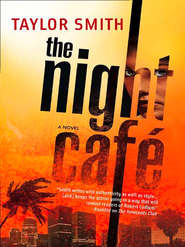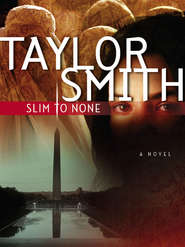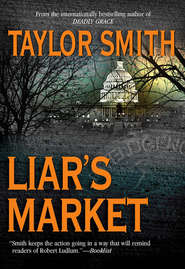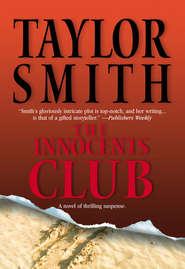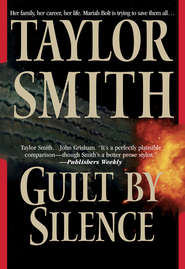По всем вопросам обращайтесь на: info@litportal.ru
(©) 2003-2024.
✖
Deadly Grace
Автор
Год написания книги
2018
Настройки чтения
Размер шрифта
Высота строк
Поля
“Will she be back later?”
“Unh-unh, not today, not tomorrow, either, I don’t think. I was told she’s out probably till the end of the week.”
“Out where? I happen to know she’s not at home.”
“Are you a friend of hers?”
“No, this is official business. Is there someone who can tell me where I can find her?”
“I’m not really sure?” the woman replied, her voice rising uncertainly, as if posing unhelpful responses as questions might make them less irritating. “I’m just a temp? The girl who usually works here was in a car accident a couple of days ago and I was just called in to take her place while she’s laid up.”
“So, who would know?”
“Maybe you should talk to Mr. Twomey.”
“And he would be who?”
“The boss here,” she suggested, cocking her thumb at a set of double doors behind her. A brass plate at the side of the door noted the room number and the occupant: Haddon Twomey, Chief Curator. “Can you hang on a sec and I’ll see if he’s free?” When Cruz nodded, she rose, then seemed to have second thoughts. “Can I tell him who you are?”
“Special Agent Cruz with the Federal Bureau of Investigation.”
“Whoa, FBI? Okay then, let me go ask.”
She disappeared into the corner office. As murmuring voices sounded from behind the door, Cruz looked around the reception area. It was a study in beige, furnished entirely in plastic and steel. The tan walls were covered in brightly colored posters left over from the Bicentennial celebration. A half-dozen buff-colored, steel-framed chairs lined the walls, and back issues of the Smithsonian Magazine were splayed across beige plastic cubes that passed for tables. There were three other doors around the reception area besides the one he’d come in, all made of the same dark wood as the curator’s, although these others were single rather than double openings. None had name plates. Maybe one of these was Jillian Meade’s office.
Cruz heard the soft click of a door latch and turned as the receptionist came back and nodded, holding the door open for him. “You can go in now,” she said, pressing herself against the door as he passed, then closing it behind her.
The office in which he found himself was markedly more luxurious than the utilitarian reception area. A massive desk the size of a dinghy took up nearly half the room, angled catty-corner against fully loaded bookshelves that covered two of the room’s four walls. The desk, made of dark wood, was intricately carved with pillars and scrolls, and it looked very old—and, Cruz thought, very expensive. Several brightly colored area rugs covered the same nondescript carpet as in the reception area. The rugs, Cruz was reasonably certain, were genuine Navajo, and old ones, too. As for the rest of the pieces in the room, he suspected were rare antiques, as well.
Opposite the desk were two floor-to-ceiling windows set into the building’s northeast corner, one on either side of the supporting corner block. Heavy silk panels in a rich shade of gold framed the windows, while the glass was covered with sheer gauzy material that did little to cut down the amount of light from the clear January day streaming in.
“Good afternoon…Agent Cruz, I believe?” The carefully modulated voice came from a silhouette that stood in front of the windows, back-lit so that Cruz found it impossible to tell whether the man was facing him or not.
“Yes, sir.” Crossing the room, Cruz angled his approach so that he put the windows to one side, affording a better view of the other man. His eyes adjusted to the change in the light, and Twomey’s features began to emerge from shadow.
He was tall, thin and patrician-looking, slightly stooped at the shoulder. Somewhere in his fifties, Cruz estimated by the mix of gray and white in his hair, which swept straight back off Twomey’s high brow, waving slightly over his collar. His blue pin-striped shirt was open-necked under a crested navy blazer that seemed faintly nautical, although it probably reflected his status as an alumnus of some Ivy League school. Was this the older man the building super had said sometimes called on Jillian Meade? Cruz wondered. The man’s eyebrows were tufted, his eyes half-lidded, as if he were bored or weary or both. His nose was long and prominent, with deep crevices running from either nostril to the edges of his plummy, turned-down lips, giving him the appearance of being permanently offended by the whiff of something malodorous in the air. Just the sight of him made every working class hackle on Cruz’s neck stand up in protest.
“So, you’re a junior G-man, are you?” Twomey asked, his hand dangling in Cruz’s general direction.
Cruz shook it and found the skin icy to the touch and uncommonly smooth for a man. Like picking up a carp.
“We’ve had occasion to seek your people’s assistance in the past,” Twomey said. “An irreplaceable silver tea service manufactured by Paul Revere himself went missing from one of our exhibits some time back. The FBI said they had a lead to a New Orleans-based antique dealer of rather shady reputation. They suspected he’d secreted it out of the country, hidden in plain view in a shipment of English silver that an equally dubious but very wealthy client living in Barbados had bought at an auction around the same time. There’d been an export permit issued, but I suppose most government bureaucrats wouldn’t know plate from pewter, much less Paul Revere, would they?”
Cruz opted not to speculate about which ignorant bureaucrats he was referring to. And while they were on the subject, wasn’t Twomey on the government payroll, too? “Did you ever get it back?”
“No. Your people still haven’t come through for us.”
Cruz had the feeling he was supposed to feel guilty, but he was damned if he was going to apologize for not showing up with Twomey’s missing teapot.
“I’m trying to get in touch with Miss Meade,” he said.
“Yes, so the girl said. Jillian is one of my curatorial associates, but she’s not in today. Is there something I can help you with?”
“Can you tell me where I might find her?”
“She’s out of town.”
“A business trip?”
“No, personal. What’s this about?”
Cruz gave him the same stock answer he’d given the caretaker—the same answer he gave anyone with no need to know and without the sense to realize they had no need to know. “It’s a routine matter. When do you expect her back at work?”
“I’m not sure. Friday, maybe? Monday, at the latest, she said.”
“Where did she go?”
“To Minnesota to see her mother. I had the impression there was a problem at home, although Jillian didn’t come right out and say, and I certainly wasn’t about to pry.”
“What kind of problem?”
Twomey moved to the desk and perched on the edge of it. “As I say, I didn’t press her on it. I do know that her mother had a cancer scare last year, so perhaps there was a recurrence.”
“Where in Minnesota, do you know?”
“A small town called Havenwood. It’s about a hundred miles from Minneapolis, I think Jillian said. She grew up there.”
“She wasn’t born there,” Cruz noted.
Twomey arched a brow, and the disapproving lines around his mouth deepened. “No, she wasn’t, as a matter of fact. Been doing your homework, I see. She was born in France. Her mother was an English war bride, her father an American pilot with the OSS—the Office of Strategic Services. That’s—”
“The forerunner of the CIA, yes, I know,” Cruz said. He might not know plate from pewter but he wasn’t a total idiot. “So the family came back to the States after the war?”
“Jillian and her mother did. Her father was killed in action over there. His parents invited Mrs. Meade to bring the baby—Jillian, that is—and come live with them. That’s how she ended up out there, although Jillian left after high school. Attended Georgetown University, and then she came to work here.”
“What does she do here? You said she’s a curatorial associate. What does that mean, exactly?”
Twomey shrugged. “She puts together exhibits for our permanent and roving collections. Researches background materials, writes pamphlets and monographs. We have several different departments here, a couple of dozen researchers, but Jillian is really quite the best of the lot. Her specialty is the military and social history of World War II. She’s been working on an oral history for the past four or five years, collecting interviews with people who were involved in various anti-Nazi operations in the European theater. It’s fascinating work, you know. That generation isn’t going to be around forever, and she’s doing invaluable work, collecting their reminiscences. I’ve been encouraging her to develop it into a book or a doctoral thesis.”
“She’s been looking at operations in the European theater?” Cruz said, his interest piqued now.
“Yes. It started with recently declassified OSS files here in Washington that I’d arranged for her to have access to. Jillian began sifting through them and then got permission to follow up with some of the retired operatives. She’s amassed quite an amount of interesting material. As I say, I think she has the makings of a book. Jillian’s published several monographs and co-authored a couple of exhibit-related books under the auspices of our presses here, but I think this is going to be her breakout work.”
“You seem very impressed with her.”
“Absolutely. In the field of history, Agent Cruz, there are good researchers, good interviewers and good writers. Rarely, though, do you find all three in one person. Jillian is that rare exception. Unfortunately, unlike others of far lesser talent, she doesn’t seem to realize her own gifts. I must confess, I despair sometimes of her reaching her full potential. It’s a question of self-confidence, isn’t it? But I’m trying to encourage her in any way I can.”
“So, you’re sort of Henry Higgins to her Eliza Doolittle?”






